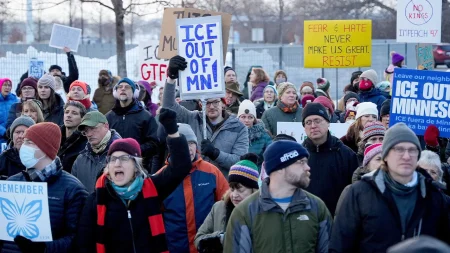The Remarkable Resurrection of Saudi Arabia’s Crown Prince on the Global Stage
From International Isolation to Influential Power Broker: The Evolving Legacy of Mohammed bin Salman
In the ornate halls of global diplomacy and the sleek boardrooms of international finance, few transformations have been as dramatic as that of Saudi Arabia’s Crown Prince Mohammed bin Salman. Once ostracized on the world stage following the brutal 2018 killing of Saudi journalist Jamal Khashoggi, the heir to the Saudi throne has methodically engineered a stunning comeback that has recast him as an indispensable geopolitical player and visionary investor. This remarkable rehabilitation—executed through strategic economic initiatives, calculated diplomatic maneuvers, and unprecedented investments in sectors ranging from technology to sports—offers a compelling case study in how economic influence can reshape international perceptions, even in the face of serious human rights concerns.
The Crown Prince’s fall from grace was swift and severe. When evidence emerged linking Saudi government operatives to Khashoggi’s murder at the Saudi consulate in Istanbul, world leaders who had previously embraced the young reformer suddenly kept their distance. Western executives canceled appearances at Saudi Arabia’s flagship investment conference, diplomats issued stern condemnations, and intelligence agencies pointed directly to Prince Mohammed’s involvement in the operation. The man who had been celebrated for allowing women to drive and curtailing the powers of the religious police found himself isolated, his ambitious Vision 2030 economic transformation plan in jeopardy. “The crown prince had become toxic overnight,” explains Dr. Yasmine Farouk, a Middle East policy analyst at the Carnegie Endowment for International Peace. “What we witnessed was unprecedented—a leader who had been welcomed in Silicon Valley and European capitals suddenly couldn’t get a meeting with many Western officials.”
The Strategic Pivot to Economic Statecraft
Rather than retreating from the international stage, Prince Mohammed executed a carefully calibrated strategy that leveraged Saudi Arabia’s immense financial resources and strategic importance. The kingdom’s sovereign wealth fund, the Public Investment Fund (PIF), became the primary vehicle for this rehabilitation, deploying hundreds of billions of dollars into high-profile international investments. With assets under management exceeding $700 billion, the PIF has taken significant positions in companies such as Uber, Lucid Motors, and Nintendo, while also funding the controversial LIV Golf tour and acquiring the English Premier League club Newcastle United. These investments served multiple purposes: they created financial interdependencies with Western economies, generated positive headlines separate from human rights concerns, and positioned Saudi Arabia as an essential partner in global finance.
The crown prince simultaneously doubled down on his economic reform agenda at home, accelerating efforts to diversify the kingdom’s oil-dependent economy. The development of NEOM, a futuristic city with an estimated $500 billion price tag, alongside ambitious tourism initiatives and entertainment reforms, signaled Saudi Arabia’s determination to modernize despite international criticism. “What we’ve seen is economic statecraft at its most sophisticated,” notes Dr. Karen Young, senior research scholar at Columbia University’s Center on Global Energy Policy. “Prince Mohammed understood that in a world increasingly driven by commercial relationships, Saudi Arabia’s financial firepower could overcome political isolation. By making the kingdom indispensable to global markets and investment flows, he created leverage that ultimately forced Western leaders to reengage.”
Diplomatic Chess Across Multiple Boards
The crown prince’s rehabilitation wasn’t accomplished through economic means alone. Saudi Arabia strategically positioned itself as an essential mediator in regional conflicts while carefully balancing relationships with global powers. When Russia invaded Ukraine, the kingdom maintained its OPEC+ partnership with Moscow while simultaneously strengthening security ties with Washington. Saudi diplomats helped negotiate prisoner exchanges between Russia and Ukraine, while also facilitating cease-fire talks in Yemen’s devastating civil war. Perhaps most significantly, Saudi Arabia has engaged in normalization discussions with Israel—a dramatic shift that would reshape Middle Eastern geopolitics and earn significant goodwill in Western capitals.
This diplomatic agility has been particularly evident in Saudi Arabia’s relationship with the United States. Despite President Joe Biden’s campaign promise to make Saudi Arabia a “pariah” state, the administration’s position gradually softened as energy security concerns and Middle East stability calculations came to the fore. Biden’s controversial 2022 visit to Jeddah, which included a fist bump with Prince Mohammed, symbolized the crown prince’s return to diplomatic acceptability. “The reality of global politics is that moral considerations often yield to strategic imperatives,” explains Ambassador Gerald Feierstein, former U.S. diplomat and senior vice president at the Middle East Institute. “Saudi Arabia’s significance as an energy producer, its leverage with OPEC+, and its potential role in Arab-Israeli normalization simply made isolation unsustainable for Washington and other Western capitals.”
The Investment Kingdom: Rebranding Through Financial Power
Perhaps the most visible aspect of Prince Mohammed’s rehabilitation has been Saudi Arabia’s emergence as a global investment powerhouse. Under his direction, the kingdom has transformed from primarily being a destination for foreign capital to becoming one of the world’s most significant outbound investors. In 2023 alone, Saudi entities announced more than $70 billion in international investments, targeting sectors from artificial intelligence to entertainment. This investment offensive has been accompanied by a sophisticated public relations strategy, with the kingdom hosting high-profile investment conferences, sports competitions, and entertainment events that showcase a more modern image.
The crown prince has personally led many of these initiatives, meeting with tech executives in Silicon Valley, finance leaders in New York, and entertainment moguls in Hollywood. These engagements serve both economic and reputational purposes, allowing Prince Mohammed to present himself as a forward-thinking reformer rather than an authoritarian ruler. “What we’re witnessing is reputation laundering through investment,” argues Sarah Leah Whitson, executive director of Democracy for the Arab World Now, an organization founded by Jamal Khashoggi. “By controlling billions in investment capital, MBS effectively forces Western business leaders and politicians to choose between their stated values and their financial interests. Unfortunately, money usually wins.” Despite such criticism, the strategy has undeniably succeeded in normalizing the crown prince’s standing in international business circles, with major CEOs and investment managers again flocking to Saudi conferences and partnerships.
A Complicated Legacy in Progress
Five years after Khashoggi’s killing, the rehabilitation of Prince Mohammed bin Salman stands as a testament to the enduring power of economic influence in international relations. While human rights organizations continue to document concerning abuses within the kingdom—including the imprisonment of dissidents, limitations on free speech, and the application of the death penalty for non-violent crimes—these issues have been increasingly overshadowed by Saudi Arabia’s growing economic footprint and strategic importance. The crown prince, once characterized primarily by the Khashoggi scandal, is now more likely to be discussed in terms of his ambitious economic reform agenda and growing investment portfolio.
This transformation carries significant implications for global governance and the international order. It suggests that in an era of intensifying great power competition and economic uncertainty, traditional Western leverage over human rights concerns has diminished considerably. Countries with substantial financial resources can effectively counter political isolation through strategic investment and economic partnerships. For Prince Mohammed, now 38 years old and positioned to potentially rule Saudi Arabia for decades to come, this rehabilitation represents just the beginning of his impact on global affairs. “What we’re seeing is the emergence of a new model of authoritarian statecraft,” contends Dr. Kristian Coates Ulrichsen, Middle East fellow at Rice University’s Baker Institute. “MBS has demonstrated that with sufficient financial resources and strategic patience, even the most serious reputational damage can be repaired.” Whether this model proves sustainable in the long term remains an open question, but for now, the crown prince’s journey from pariah to power broker stands as one of the most remarkable political comebacks of the modern era.









